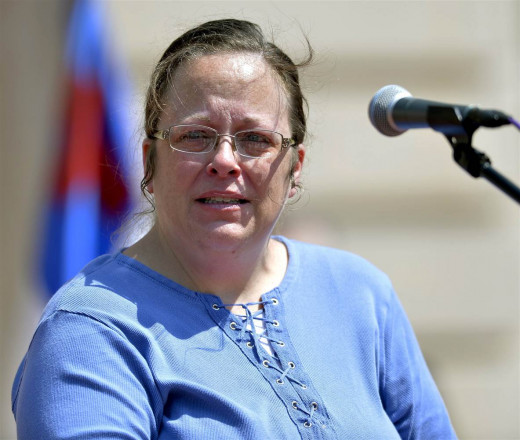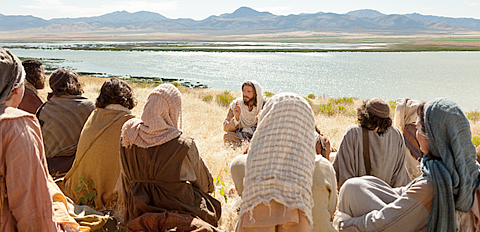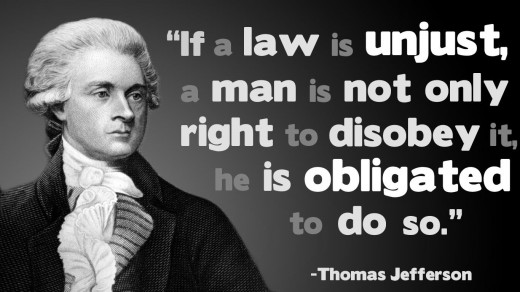Addressing the Kim Davis dilemma
Kentucky Clerk Official Kim Davis

Rowan County, Kentucky Clerk Arrested
According to social media outlets, Kim Davis, a Rowan County, Kentucky Clerk, has been arrested due to reported contempt of court charges. For the past few months, Kim Davis has become the center of attention. Reason for this spotlight is the controversy over same-sex marriage. Various groups, blogs, and other online sources have engaged in continuous discourses as either: applauding her as a Christian soldier who is standing on her religious convictions, or, as a possible bigot and violator of individual constitutional rights when it comes to marriage. Since the national recognition of same sex marriage as being constitutional by the United States Supreme court, several news articles have consistently shown a type of obstinate stand from those who proclaim a type of "conscientious objection" due to religious beliefs. For Kim Davis, this resulted in a reported arrest due to her being in contempt of court and law.
The question before us is two-fold: Was Kim Davis correct in denying marriage license to same sex couples or not? And, is this compatible with the teachings of Jesus Christ?
Jesus Christ

To love and serve others - our civil duty
The Bible is very distinct and clear on one central message: The ultimate love God has for all his children, and through that love and compassion, how we too can love others and how we are to be of service to others. Our love for others is not merely confined to the body of Christ. Our love for others is all encompassing of everyone we meet.
Through the unconditional love God has for us, we receive grace. Likewise, we are expected to show love and compassion to all others. In fact, 1 Peter 2:13-17 shares this insight:
13 Be subject for the Lord's sake to every human institution, whether it be to the emperor as supreme, 14 or to governors as sent by him to punish those who do evil and to praise those who do good. 15 For this is the will of God, that by doing good you should put to silence the ignorance of foolish people. 16 Live as people who are free, not using your freedom as a cover-up for evil, but living as servants of God. 17 Honor everyone. Love the brotherhood. Fear God. Honor the emperor.
The question here concerns how we, as Christians, are able to maintain and uphold those in leadership - even when laws are written and put forth that seem to violate our very religious belief system and standard? John Piper gave a sermon in January 1993 regarding this very passion. A time when President Clinton was in office. Pipers message, titled: Being Pro-Life Christians Under a Pro-Choice President, provides some straightforward answers to this passage and the context of Kim Davis and her resolution to not comply with her duties as a County Clerk official.
David H. Roper had this to say in his discussion on 1 Peter 2:13-17:
The first is that Christians are called to civil obedience. There is no question about this. It could not be stated more clearly. We are to submit to the authorities at every level, whether federal, state, or local -- whether we are talking about the Supreme Court or a traffic court, whether laws governing federal income tax or parking regulations, or whatever. We are to submit as a Christian obligation. This is restated again and again in Scripture -- by the apostle Paul in Romans 13, by Jesus himself when he said, "Render unto Caesar the things that are Caesar's, and unto God the things that are God's." There are things which are solely God's, and therefore they cannot be given to Caesar. But Jesus is saying that Caesar has a legitimate sphere of authority, and we are to render to him the things which fall within that realm of authority. So we are to obey. Civil disobedience by Christians simply cannot be justified from Scripture.
True, when it comes to the term "obedience" some Christians tend to shy away from it due to preconceived notions of "legalism". Here, the word of God that is written in Peter's first epistle is distinguishable and clear: We are to submit ourselves to civil obedience to those in authority. For Kim Davis, her lack of submitting to the civil laws caused her impending imprisonment and contempt of Court. In a manner of speaking, she not only violated the law of the land through her own act of disobedience - refusal to provide marriage certificates to same sex couples, she also has gone against the very word of God itself in her obstinate act of disobedience.
Thomas Jefferson - Civil Disobedience

Chuck Colson - Christians and Civil Disobedience
Christians and Civil Disobedience
This brings up the question - when does it become necessary for Christians to engage in Civil Disobedience? More specifically, has Kim Davis engaged in her right to engage in Civil Disobedience by not providing marriage certificates to same-sex couples? From the commentary on social media, there are Christians who are stating that she is doing just that: engaging in her ethical and Christian duty to engage in civil disobedience when it comes to same sex marriage.
Civil Disobedience is a tricky and ethical discussion. Remember, just because something is legal does not necessitate the fact that it is ethical. For the Christian, same-sex marriage is not an ethical principle of truth. In this respect, Kim Davis has the right to engage in civil disobedience. For her, and many Christians, it is unethical to compel someone with a religious conviction to violate said conviction. Regardless if the law says otherwise.
This is where the waters become murky and the Bible itself is somewhat silent. Not on the issue of homosexuality itself (see the following paper by Daniel J. Lewis: The Christian and Social Ethics, pp. 22-35); however, on the act of civil disobedience and Christian living and thought process.
First, how does one define civil disobedience from a Christian perspective? In the 1986 Spring Direction (A journal from the Mennonite Brethren) we find this:
Purposeful, nonviolent action, or refusal to act, by a Christian who believes such action or inaction is required of him or her in order to be faithful to God, and which s/he knows will be treated by the governing authorities as a violation of law.
In this manner, Kim Davis did not act in a violent manner. However, reading the article mentioned, one may find that Ms. Davis did not meet certain criteria for her act of "civil disobedience" from a Christian perspective. Despite her meeting the mere definition of what Civil Disobedience quite possibly means.
How do we live as Christians in society?
There are no easy answers. When it comes to same-sex marriage, the reality is - we have to accept it as the law of men and of the land. We must come to respect those who may disagree with us and whom we are in disagreement with. Where does this leave the situation with Kim Davis? The few commentaries that I have read asked a simple question - How come she did not simply quit?
Personally, if it became that problematic where I found myself unable to perform the essential duties of my employment, I'd rather place my faith in God to help secure different employment opportunities rather than stand obstinate and become the center of attention. There are various ways Christians can engage in acts of civil disobedience. One of them is refusing to continue performing the work that runs contrary to our own faith and values.
However, that is my own personal opinion. Others may have stood in Davis's shoes and do exactly what she has done, remained steadfast in her own convictions.
So, back to our question: Was she right to do what she did and is it within the teachings of Jesus Christ? I will leave that up to the reader to decide.








